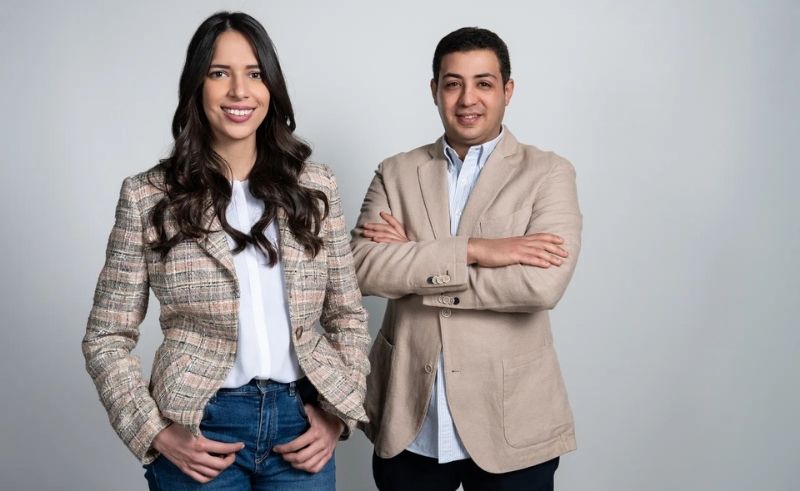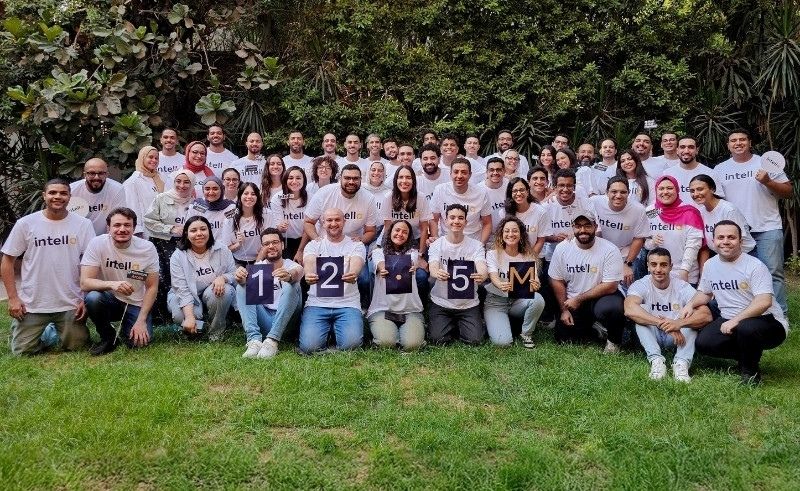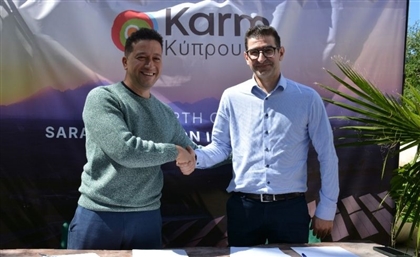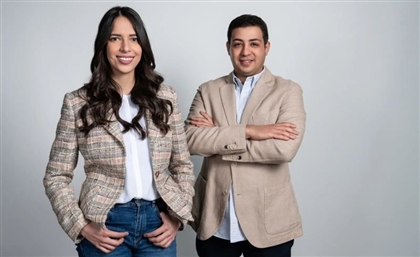Intella: The Egyptian Startup Solving Global AI’s Arabic Blind Spot
$12.5m in fresh funding, Intella is scaling Arabic conversational AI across MENA. Its intellaCX analytics suite and Ziila digital human turn every customer call into measurable intelligence.

Intella set out to build an Arabic voice brain where none existed. - and in two years, the Egyptian startup has turned customer calls into the raw material for a new kind of commerce.
Intella was conceived as an answer to a practical problem: global AI systems were failing to hear the region correctly and the company's co-founders describe that failure plainly.
"The global AI revolution was happening, but it had a critical blind spot: it couldn't understand the way people in the Arab world actually speak,” Nour Taher, co-founder and CEO, tells StartupScene. That blind spot, they argue, left the vast majority of customer conversations - their most valuable data - being lost.” What Intella builds is simple to describe but hard to do. At its core is an analytics suite for contact centers that converts speech into insight.
“[The product] analyzes 100% of a client's customer calls and transforms that raw audio into a strategic asset,” co-founder and CTO, Omar Mansour, explains. Layered on top of that analysis is an interaction layer, Ziila, the company’s AI digital human, designed to take the next step from listening to speaking.
The company’s technical edge rests on data and engineering. Global models struggle because the region lacks large, labelled conversational datasets; Intella solved that by building one.
“We spent 18 months building one of the largest and most diverse proprietary datasets of regional conversations in the world,” Mansour says of an investment in data that is presented not as an incidental advantage, but as a defensible moat: the work is expensive to replicate and central to the accuracy they claim.
-b5e19942-d38b-4c1c-9aab-79afd9d9a01a.jpg) Clients see the result as more than accuracy numbers. The founders point to an early public case: a rollout with Jumia that replaces typing with voice ordering in Egyptian dialect. For customers, the change is immediate, a less frictional path to purchase. “Instead of typing, customers can now simply speak their order in their natural Egyptian dialect,” Taher explains. For enterprise buyers, the payoff is operational and measurable: fewer costs, clearer compliance and new revenue channels.
That trajectory attracted capital. Intella’s $12.5 million round in September, 2025, led by Prosus with regional partners, was read internally as an endorsement. “This funding round was a powerful validation of our vision, our technology and our team,” Taher says, adding that the money will be spent on widening the lead and to scale. “Our allocation strategy is focused on accelerating our momentum across three key pillars. First, deepening our R&D, second, accelerating our MENA expansion, and third, hiring the best talent in both Egypt and Saudi Arabia,” Mansour explains.
Clients see the result as more than accuracy numbers. The founders point to an early public case: a rollout with Jumia that replaces typing with voice ordering in Egyptian dialect. For customers, the change is immediate, a less frictional path to purchase. “Instead of typing, customers can now simply speak their order in their natural Egyptian dialect,” Taher explains. For enterprise buyers, the payoff is operational and measurable: fewer costs, clearer compliance and new revenue channels.
That trajectory attracted capital. Intella’s $12.5 million round in September, 2025, led by Prosus with regional partners, was read internally as an endorsement. “This funding round was a powerful validation of our vision, our technology and our team,” Taher says, adding that the money will be spent on widening the lead and to scale. “Our allocation strategy is focused on accelerating our momentum across three key pillars. First, deepening our R&D, second, accelerating our MENA expansion, and third, hiring the best talent in both Egypt and Saudi Arabia,” Mansour explains.
 Today, the company numbers 82 people across two offices. “Our team is our greatest asset; we're currently a rapidly growing team of talented individuals across our offices in Riyadh and Cairo, all dedicated to building the future of Arabic AI,” Taher says. The founders describe a feedback loop: better models deliver better products, which win enterprise customers, which in turn provide more data to improve models.
Today, the company numbers 82 people across two offices. “Our team is our greatest asset; we're currently a rapidly growing team of talented individuals across our offices in Riyadh and Cairo, all dedicated to building the future of Arabic AI,” Taher says. The founders describe a feedback loop: better models deliver better products, which win enterprise customers, which in turn provide more data to improve models.
-fe118deb-dd13-433e-9c80-6cd689a3a452.jpg) Intella’s positioning is explicit: build Arabic-first systems rather than retrofit global ones. “Our competitive edge is fundamental,” Mansour explains. “Global companies adapt existing models; we build from the ground up. This 'Arabic-first' approach is our core differentiator.” The company frames that approach as both technical and commercial - localisation as a structural design choice, not a bolt-on feature.
If the founders’ ambition is realised, the result would be a major change to how businesses in the region talk to customers.
“Our long-term vision is to power a digital Arabic AI workforce,” Taher says of their compact and unapologetic approach. The phrase points to an outcome that is both infrastructural and cultural: tools that understand not only words but the context that gives them meaning.
Intella’s next chapter will be decided by two tests. The first is technical: whether proprietary data and engineering can sustain a lead as global players pour resources into Arabic speech. The second is commercial: whether enterprises will re-architect customer systems around a new voice layer. For now, Intella is positioning itself at the intersection of those questions - a startup betting that the region’s language is not a problem to be patched, but an operating system to be built on.
Intella’s positioning is explicit: build Arabic-first systems rather than retrofit global ones. “Our competitive edge is fundamental,” Mansour explains. “Global companies adapt existing models; we build from the ground up. This 'Arabic-first' approach is our core differentiator.” The company frames that approach as both technical and commercial - localisation as a structural design choice, not a bolt-on feature.
If the founders’ ambition is realised, the result would be a major change to how businesses in the region talk to customers.
“Our long-term vision is to power a digital Arabic AI workforce,” Taher says of their compact and unapologetic approach. The phrase points to an outcome that is both infrastructural and cultural: tools that understand not only words but the context that gives them meaning.
Intella’s next chapter will be decided by two tests. The first is technical: whether proprietary data and engineering can sustain a lead as global players pour resources into Arabic speech. The second is commercial: whether enterprises will re-architect customer systems around a new voice layer. For now, Intella is positioning itself at the intersection of those questions - a startup betting that the region’s language is not a problem to be patched, but an operating system to be built on.






















